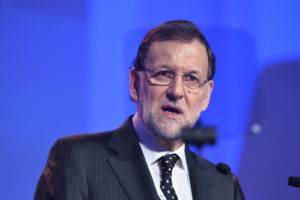Regional Elections Unlikely to End Spain’s Deadlock
 Regional elections in northern Spain appear to have made no headway in selecting the next prime minister of Spain’s currently leaderless government. Voting in Galicia and the Basque country on September 25 failed to provide the needed majority for interim prime minister Mariano Rajoy to secure leadership of Spain’s congress, according to a tally by Spanish newspaper El Mundo.
Regional elections in northern Spain appear to have made no headway in selecting the next prime minister of Spain’s currently leaderless government. Voting in Galicia and the Basque country on September 25 failed to provide the needed majority for interim prime minister Mariano Rajoy to secure leadership of Spain’s congress, according to a tally by Spanish newspaper El Mundo.
This impasse means that Spaniards will likely have to return to the polls in December for the country’s third general election in just one year.
According to El Mundo’s report, both Rajoy’s Conservative People’s Party (PP) and the PP’s main opposition, the Spanish Socialist Worker’s Party (PSOE), faced crippling defeats in the Basque Country, causing members of both parties to ask their prospective leaders to step down.
Rajoy, who lost his second vote of no confidence in September, suggested on his Twitter account on September 26 that he will remain a candidate in future elections.
Similarly, in what some are calling an unsustainable and immature refusal to surrender, PSOE leader Pedro Sánchez has declined to relinquish control. He has, however, attempted to form coalitions with Spain’s minority parties, such as the leftist “Together We Can” (Podemos) and centrist Citizens (Ciudadanos), in order to gain a relative majority over Rajoy.
“It’s like Game of Thrones, no?” said a Spanish university student in an interview with The Caravel on September 26. “PSOE and Podemos are enemies, but they’ll align to beat the PP. It’s like the Tyrells joining Daenerys because they really hate the Lannisters. It’s so childish.”
Following nearly a year of political gridlock and the aforementioned shifts in party alliances, many Spaniards now express little hope for the future of their country.
